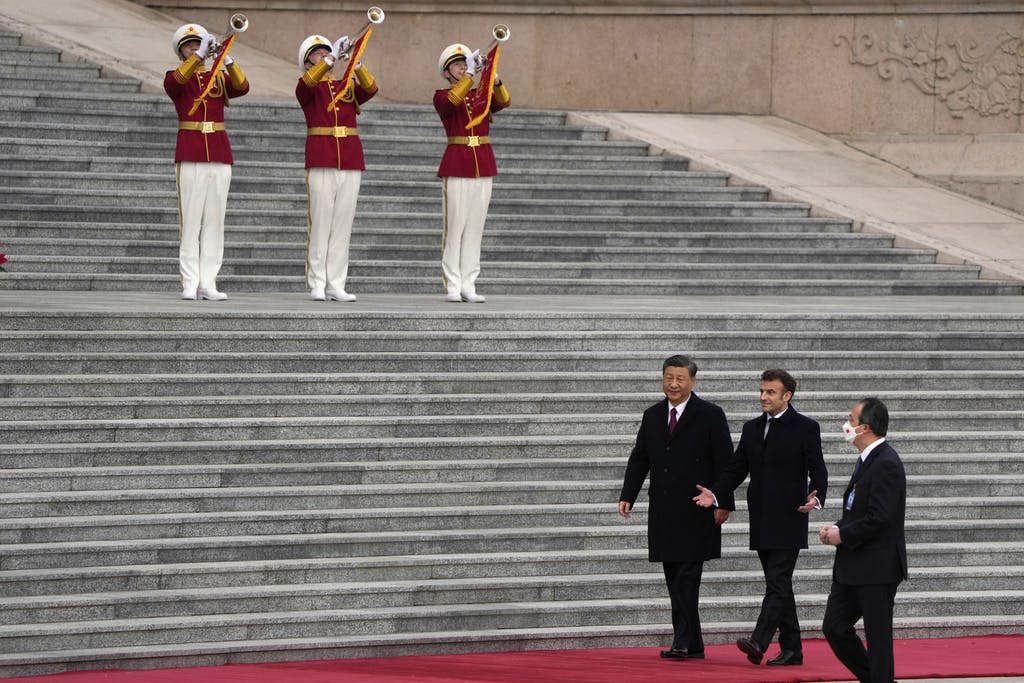France’s Macron, Having Realized Europe Is Mortal, Turns to a Rendezvous With Communist China’s Xi Jinping
They mount an expedition to the pic du midi in the Pyrenees — could the famously rarified air clarify the mind of the party boss?

President Macron of France, having realized that Europe is “mortal,” has assumed the task of resuscitating it. Yet a number of his proposals and tactics, including his hosting of Xi Jinping in Paris next week — Mr. X’s first European visit in five years — might rather hasten Europe’s undue demise. Some also raise doubts over France’s reliability as an American ally, particularly in matters concerning Communist China.
Please check your email.
A verification code has been sent to
Didn't get a code? Click to resend.
To continue reading, please select:
Enter your email to read for FREE
Get 1 FREE article
Join the Sun for a PENNY A DAY
$0.01/day for 60 days
Cancel anytime
100% ad free experience
Unlimited article and commenting access
Full annual dues ($120) billed after 60 days

